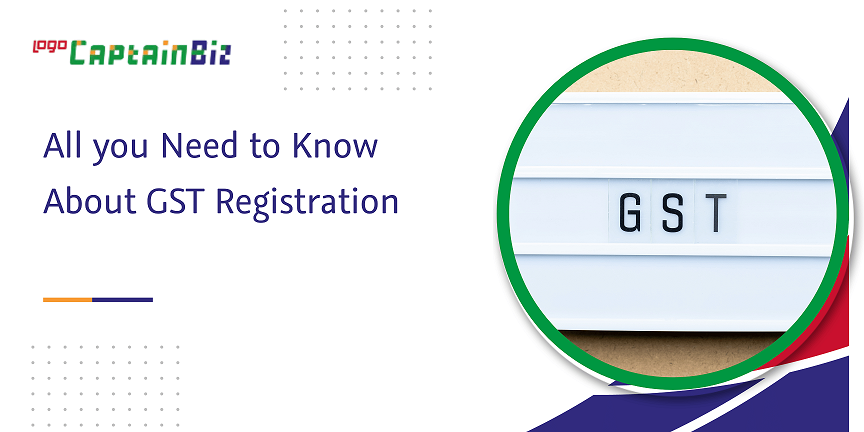Finding Reputable and Effective Best GST Registration Services in Singapore
Finding Reputable and Effective Best GST Registration Services in Singapore
Blog Article
From Beginning To End: The Ultimate Roadmap to GST Enrollment for Businesses Seeking Financial Stability
Navigating the intricacies of Item and Services Tax (GST) enrollment is an essential action for services aiming for economic stability. Damaging down the roadmap into manageable actions can streamline the registration trip for organizations looking to enhance their financial standing.
Comprehending GST Essentials
Looking into the essential principles of Product and Provider Tax Obligation (GST) is important for getting a detailed understanding of its effects on businesses and the economic situation. GST is a value-added tax obligation imposed on most items and services for residential usage. It has changed several indirect taxes that existed in the pre-GST era, streamlining the tax obligation framework and improving ease of doing service in India. Under the GST system, both services and goods are strained at a details rate, which is determined based upon their category. Organizations are required to register for GST if their annual turn over surpasses the threshold limit established by the federal government. Input Tax Obligation Credit (ITC) is a substantial attribute of GST, allowing companies to declare credit rating for tax obligations paid on inputs, minimizing the general tax obligation concern. Understanding the fundamentals of GST is important for organizations to follow tax laws, manage their finances effectively, and add to the nation's economic development by taking part in a transparent tax obligation system.
Eligibility Criteria for Enrollment
As of the existing guidelines, the threshold limit for GST registration is an annual accumulation turn over of 40 lakhs for companies running within a state, other than for unique category states where the limit is 20 lakhs. Additionally, certain organizations are required to register for GST regardless of their turn over, such as interstate distributors, informal taxed persons, and services liable to pay tax obligation under the reverse charge system. It is vital for companies to extensively assess their turnover and purchase types to identify their GST enrollment responsibilities properly.
Papers Required for Enrollment
Having fulfilled the eligibility requirements for GST registration, businesses must currently guarantee they have the requisite records in area to continue with the registration process efficiently. The records required for GST registration typically consist of proof of service constitution, such as collaboration act, enrollment certificate, or consolidation certificate for different types Learn More Here of services. In addition, businesses require to give documents developing the major area of service, such as a rental arrangement or electricity bill.
Step-by-Step Enrollment Process
Commencing the GST enrollment process entails a collection of structured steps to guarantee a certified and seamless enrollment for businesses. The initial step is to go to the GST website and fill in the registration kind with exact information of the organization entity. Following this, the applicant receives a Momentary Reference Number (TRN) which is made use of to return to the application process if it's not completed in one go.
Next, all called for records as per the list supplied by the GST portal demand to be uploaded. These records typically include proof of business identification, registration and address proofs of marketers, economic statements, and service entity's PAN card.

Post-Registration Compliance Standards

Verdict
Finally, services seeking monetary security should recognize the essentials of GST, satisfy qualification criteria, collect required records, adhere to the step-by-step enrollment process, and follow post-registration standards - Best GST registration services in Singapore. By adhering to these steps, services can make sure compliance with tax laws and preserve financial security in the future
Furthermore, specific organizations are needed to sign up for GST irrespective of their turn over, such as interstate suppliers, casual taxed individuals, and organizations accountable to pay tax obligation under the reverse fee device.Having fulfilled the eligibility standards for GST enrollment, companies should currently ensure they have the requisite papers in area to continue with the registration process effectively. The papers needed for GST registration generally consist of proof of organization constitution, such as collaboration action, registration certification, or consolidation certification for different kinds of services. In addition, organizations need to provide documents establishing the principal location of organization, such as a rental contract or electrical energy bill.Starting the GST registration procedure entails a series of structured steps to make certain a compliant and smooth registration for businesses.
Report this page